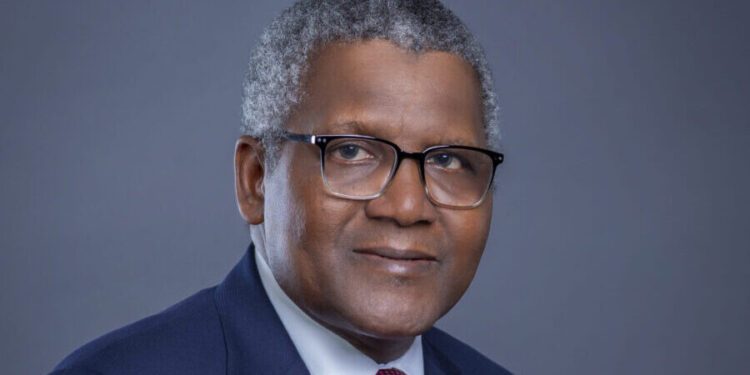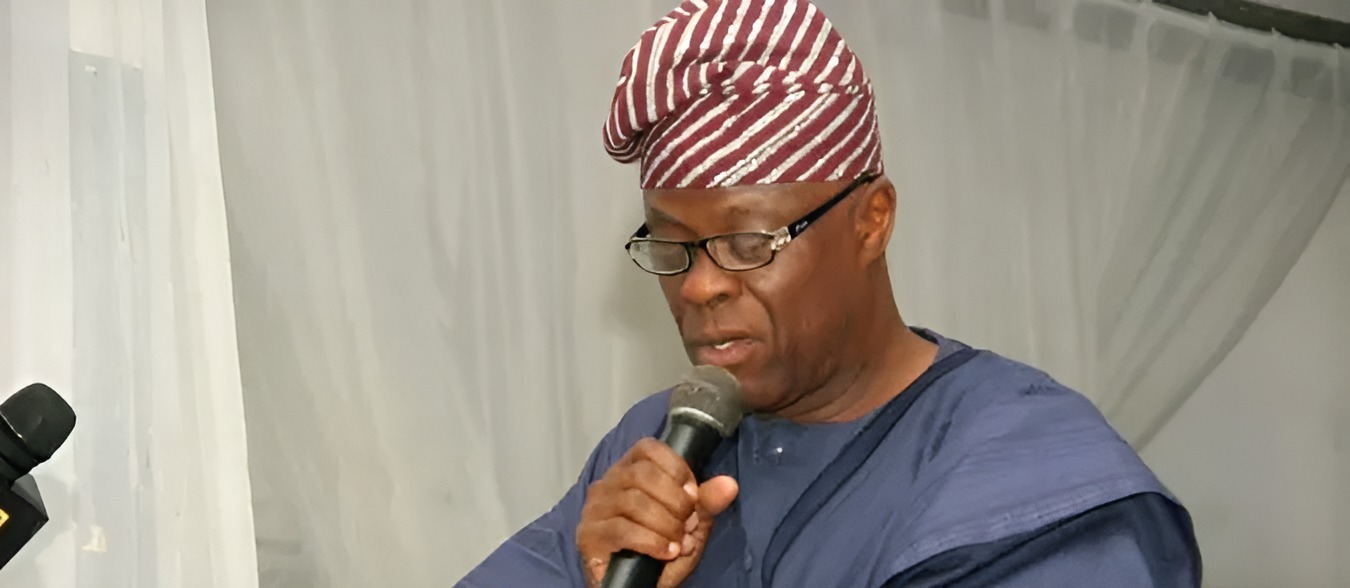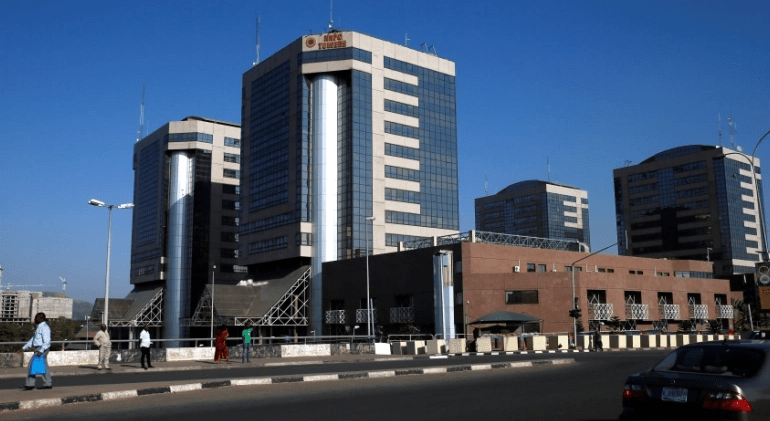By Tunji Olaopa
When the new administration was inaugurated in 2023, HE President Bola Ahmed Tinubu laid out the basic underlying visions of the Renewed Hope Agenda. A significant iteration of that Agenda is the vision of Nigeria becoming a $1trn economy by 2030. This is a very noble vision that is consistent with the urgency of making Nigeria a great economy. It is a vision that could jumpstart the Renewed Hope Agenda into transforming the well-being of Nigerians. However, we also have to situate this vision within Nigeria’s governance and economic realities.
To get to where Nigeria really can begin to make a significant improvement in the lives of Nigerians, the Nigerian state needs to be an enabling and capable developmental state. However, the governance and economic realities on ground as at the 2023 commencement point, only reiterate how difficult but not impossible the vision of transforming the Nigerian economy is. A developmental state depends on government effectiveness that is determined in terms of not only government’s regulatory efficiency but also on public sector accountability, and how well the government is able to adapt its comparative advantages to the dynamics of the global economy.
Unfortunately, Nigeria’s performance on the Government Effectiveness Index—a key dimension of the World Bank’s Worldwide Governance Indicators (WGI)—remains significantly below global norms. The 2023 performance is not salutary: on a scale ranging from –2.5 to +2.5, Nigeria’s score stood at –0.85 (up from –1.04 in 2022, but still far below the world average of approximately –0.04). This ranked Nigeria at 151 out of 193 countries.
To materialize this vision of a $1trn economy by 2030—just about five years away—we truly need more than statistical and econometric analysis. What is needed is a huge dose of institutional strategy that translates visions to realities. This is because Nigeria’s sub-optimal performance in the WGI and other significant economic and development indices reflects persistent institutional weaknesses in the form of (i) limited civil service professionalism, (ii) policy inconsistency and implementation bottlenecks, (iii) poor quality of public service delivery, and (iv) inadequate accountability and oversight mechanisms.
Most particularly, achieving the goal of a $1trn economy by 2030 requires that Nigeria must sustain an average annual real GDP growth rate of approximately 6–7%, significantly higher than its historical average of 2.7% over the past two decades. Achieving this requires removing key barriers to growth, including inadequate infrastructure, low productivity, fiscal leakages, and, most importantly, a human capital deficit in both the public and private sectors.
It is clear, from so many indications, that Nigeria has still not registered the developmental implication of Nigeria’s youth bulge—a demographic situation that currently places the median age of many Nigerians at 18.1 (meaning over half of the population, or 58%, are under the age of 30). There is a connection between Nigeria’s low human capital index (currently at 38/100, compared to 92 in South Korea and 85 in Malaysia), and her labour productivity which has been growing at a rather sluggish 0.9% per annum, compared to the 3-4% that defines the high-performing Asian economies.
This is the juncture at which the public service becomes a crucial partner in Nigeria’s development and governance efforts; a co-architect in jumpstarting the Renewed Hope Agenda. The civil service is the institutional context within which the human capital is transmuted into a workforce that generates the requisite dynamics Nigeria needs for an effective labour productivity. This urgently speaks to a new kind of civil service that is capability ready to reposition Nigeria’s development renaissance; a new kind of public servant that is committed, well-trained, accountable, digitally literate, economically aware, and possesses twenty-first century competences. And ultimately, it speaks to a Federal Civil Service Commission (FCSC) that is sufficiently reformed to reform the reform of the civil service system and reposition it for its mandated responsibility.
This is the very crux of the series of events that the FCSC has put in place to initiate a deep-seated strategic blueprint that articulates the structural basis of an efficient workforce to backstop Nigeria’s economic transformation.
As soon as the 10th Commission was inaugurated on the 13th of December, 2023, it became very urgent to put in place a rapid institutional assessment to determine the state of the institution. The repositioning plan that the rapid assessment yielded enabled us to clearly see the challenges of the FCSC from its inception till date. Thus, one and a half years into the tenure of the 10th Commission, we are now beginning to develop the sense, through diagnostic intelligence and insights, as to the direction the FCSC ought to be transformed into in more deeply structural and institutional terms. This implies that the original repositioning plan the FCSC developed as a roadmap into understanding the current state of the institution was nothing more than a starting point—a product of largely desk assessment that is just the first step towards a more rigorous and systematic diagnosis rooted in research and intelligence. Such a diagnosis will also be grounded in stakeholders’ contributions and buy-in.
At the core of this deeper strategic plan is the question of what the civil service will look like, from the vantage point of the reform blueprint of the FCSC, if it is to constitute a veritable game changing strategic partner and engine room for realizing the Renewed Hope Agenda.
It is therefore one of the good fortunes of the FCSC to take a significant clue that aligns it with the Federal Civil Service Strategy and Implementation (FCSSIP) currently being implemented by the Office of the Head of the Civil Service of the Federation (OHCSF). In such a critical collaboration that foregrounds complementary and shared vision and passion, the FCSC facilitates a strategic planning intelligence that enables it to rethink, deepen and consolidate its constitutional mandates.
In more concrete terms, the essence of the strategic plan—and the retreat (that just held) to put it together—is to set in motion a series of strategic processes that will transform the FCSC into the critical human resource management (HRM) expert advisory hub that the Federal Government of Nigeria can draw on. This requires that the FCSC is compelled to take on the task of re-professionalizing the civil service system though the reinvention, deepening and strengthening of the competency-based HRM practices in the federal civil service. The strategic process will then have to focus on several crucial institutional elements the system needs to reorient the reforms of the past decades.
At the very top of the strategic focus is the urgent need to rethink on the founding constitutional mandate of the Commission, especially its role as the gatekeeper and promoter of meritocracy and the merit system. This strategic plan will need to think through how the mandate of the FCSC can keep being executed while maneuvering the structural landmines of the federal character policy. Second, gatekeeping merit correlatively demands that a solution must also be found to address the challenge of staff retention in the face of poor and non-competitive wage and compensation structure that signals that the government is ready to become the employer of choice for its human capital. Third, the gatekeeping of the merit system also demands that the FCSC will put in place a rigorous and competitive entry-level recruitment and staffing assessment that drastically cut through the framework of nepotism and patronage as the mechanism for political compensation at the expense of civil service workforce efficiency. This demands, furthermore, that attention must be focused on articulating a correlate framework for securing and injecting integrity tests into the entry-level assessments that insulate the system from recruiting into the workforce criminally-minded persons as well as those who lack the requisite public-spiritedness the system sorely needs. As a corollary, and third, the strategic repositioning of the FCSC must ensure that the bar of staff progression is constantly raised through the regular conduct of promotion exercises that serve to test the ability of the officers, as well as the skills and competences required to effectively run the business of government at different levels of seniority. This, in addition, should lead to the replacement of the existing annual performance evaluation report (APER) by a framework of performance management assessment reinforced by training-based assessment report.
In this regard, the Commission takes merit to go beyond getting the best people into the civil service. It means also that the best ideas feed the policy making process, and that the best people implement the policies. Beyond the present concern therefore, to get the basics right to reset the federal service, the Commission is determined to review its guideline for mainstreaming, codifying and implementing merit criteria, especially in the recruitment process, in a manner that is consistent with realizing the objective of the federal character policy as a veritable tool for national spread and diversity management.With this, we will at once have researched the feasibility of the application of the merit principle in the selection and career management in other public services including our educational institutions.
At the other level of the constitutional mandate of the FCSC is the key issue of discipline. One of the critical findings of the rapid assessment carried out at the inception of the 10th Commission is that discipline is at its lowest ebb system-wide, and this is equally attendant by deviant and anti-system unruliness that further compromises efficiency. A strategy to combat this disciplinary matter must consider critical questions: (i) Are there already in place the framework of principles and rules for addressing staff disciplinary issues and grievances? (ii) Are these rules and principles fairly, reasonably and consistently applied in practice? (iii) Are alleged professional misconducts thoroughly investigated before disciplinary charges are laid? (iv) Are offenders given adequate time to respond and make representation? (v) Are findings considered transparently and with full fidelity to regulations, and are follow-up investigations conducted where desirable? (vi) Are penalties and sanctions meted out in accordance with the rules of law and in manners that are fair, consistent, reasonable, and is there room for appeal? (vii) Does this whole disciplinary procedure for handling infractions and staff grievances comply with extant rules, regulations and established codes of practice?
The significance of disciplinary measures to curb professional infractions demands that the strategic plan for repositioning the FCSC must facilitate reform changes that enable the FCSC to guide against systemic weaknesses. This can be in the form of (a) procedural errors, with possible legal cases and the attendant financial burdens, arising from lack of professionalism and training for staff who handle disciplinary cases, appeals and staff grievances; (b) poor handling of cases in courts occasioning many avoidable legal rulings against government as a result of minor court procedure lapses; (c) numerous court judgments—and the attendant drawback on government’s scarce resources—where government is compelled to reinstate real offenders, pay inappropriate backdated staff benefits and costs of system’s negligence and inefficiency.
As a final and critical strategic imperative, reforming the FCSC demands an antecedent transformation of the FCSC secretariat and core functions. One, there is the urgent need to create a framework that facilitates the professionalization of the Commission’s secretariat as well as the modernization of its core operations and processes through computerization and digitization. Two, the strategic plan must prioritize the design of the monitoring, evaluation and reporting system that allows the Commission proper oversight over the power delegated to the MDAs as what is not inspected obviously, should not be expected. Three, new structures must be put in place to strengthen the Commission’s collaborative and partnership efforts with state’s CSCs, regional bodies like the African Association of Public Service Commissions (AAPSCOMMs), and other global communities of service and practice. Four, the FCSC must be structured in ways that enable it to revive and facilitate a framework of town-and-gown synergy that leverages research and intellectual capacities of pubic administration and policy scholars and practitioners for knowledge management and problem solving. And finally, the strategic plan must find a way to correct and regulate the high turnover rate of staff posted to work in the Commission from the central pools.
- Olaopa, Professor of Public Administration, is the Chairman, Federal Civil Service Commission, Abuja.




